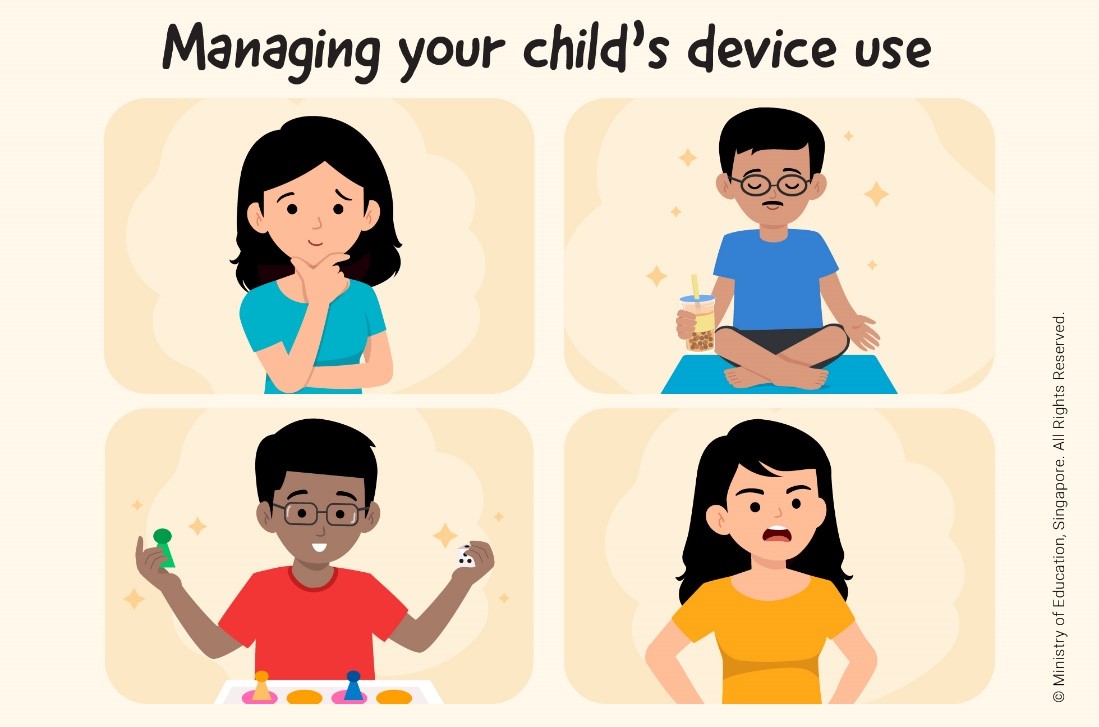Every parent wants the best for their children. In our anxiety to reach out, our words and actions may not always go down well with them. How then can parents put across well-meaning intentions more constructively – such that our children can reap the full effects of our intent? Three teachers share their tips.
Eilina Look, Upper Primary Year Head
Teacher’s example
Strengthening the Teacher-Student Relationship (TSR) is fundamental in supporting a child. Positive TSR allows the significant adult to know the child, relate to the child and influence the child. Teachers and parents have to first understand the child’s needs in order to create a conducive environment that motivates them to learn and grow. Teachers typically do this via existing school programmes like Form Teacher Guidance Period, class discussions as well as out-of-classroom platforms such as during CCA, learning journeys and outdoor camps, to get to know the students better beyond academics.
Tip for parents
Parents can also find ways to strengthen parent-child-relationships to complement the effort in school to strengthen TSR – to know the child, relate to the child and influence the child. Instead of a one-way “interrogation” about how your child is doing at school, parents could share the struggles they face at work to start a conversation going. With such a call to authenticity, the child will be more willing to open up.
Chong Hui Hui, Secondary School Mathematics Teacher
Teacher’s example
If a child makes a mistake, refrain from scolding and telling them to rectify it immediately. This will only make them – and yourself – upset. I would use the “3 Whys, 1 How” technique to soften the approach.
Scenario
When a child forgets to do his homework, what would you do or say?
Student: Miss Chong, I forgot to do my homework.
Teacher: Why did you forget?
Student: Because I didn’t know there was homework.
Teacher: Why didn’t you know there was homework?
Student: Because I didn’t note it down.
Teacher: Why is that so?
Student: Because I wasn’t paying attention and didn’t know that you’ve assigned homework.
Teacher: So how can we avoid this moving forward?
Student: Pay attention and not get distracted in class.
This technique allows the child to take self-directed responsibility and ownership of a problem. Through the realisation of their mistake, they take steps to correct themself. The use of “we” reflects the teacher’s commitment to work with them instead of leaving the child to fend for themself. Instead of a loss in self-respect (if the teacher has merely reprimanded him), mutual respect is built. The rest of the class is also able to observe, learn and benefit from their peer’s experience.
Don’t just ask about schoolwork. Find out more about the child outside of academics by asking about their teachers and friends. This is where you’d learn more about their social life, pain points and outlook.
To better relate to the child, parents should try to put themselves in their shoes. Keep practising at having open conversations and refrain from immediately overriding or dismissing their views – to show that you respect your child as an individual. This is key to establishing trust and a long-lasting relationship.
Tip for parents
Instead of merely blaming the child for a slip-up, parents can try probing a little deeper into why, for example, they did not tidy their room. Instead of saying “Why is it so difficult for you to clean up?”, which sounds very accusatory, work with them to address the specific reasons behind their tardiness. Then ask them to propose a solution. (You could give suggestions, such as helping them to break their solution into smaller steps to achieve small goals. But ultimately, they need to agree with their solution and how to get there, or there would be no sense of ownership.) Be prepared to tweak the plan if things do not turn out as expected the first few times.
Koh Ee Hway, Junior College Chemistry Teacher
Teacher’s example
Being “not good at a certain subject” is a common refrain we hear from students. When probed further, the basis of this statement could be a result of their past experience with poor grades. As teachers, we want to encourage our students to adopt a growth mindset – by guiding them to look beyond the numbers and focus instead on the review of their understanding of the materials.
It is common to use pit stop checks in class to ensure that students are learning well. These can range from dipstick questioning (to test the understanding of concepts) to project assignments that culminate in a presentation, just to name a few.
Such regular check-ins and timely feedback are effective in helping students make milestone progress.
Tip for parents
While it is the role of teachers to give specific feedback on academic learning, parents can, by the same extension, borrow these guiding principles when communicating with the kids.
For instance, instead of merely saying “Don’t argue with me”, give precise feedback on what is upsetting you. Say “I don’t appreciate your tone. I know you are angry but it is not a nice thing to do. Can we talk about this at a later time when you’ve calmed down?”.
Then, at an opportune time, reflect on the behaviour and suggest ways to change it. (“Remember the time when you were upset? We agreed on how to deal with this.”)
Remember to close the loop with your child to reinforce the learning on an encouraging note. (“That wasn’t so bad! Look how far you’ve come along. You can do hard things and I’m proud of you.”.)





.jpg)
